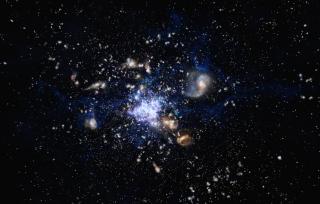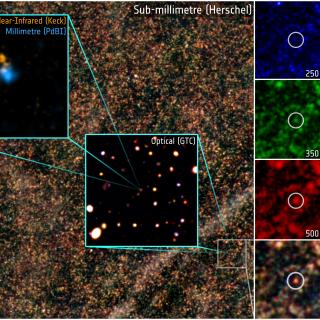Bibcode
Pierel, J. D. R.; Newman, A. B.; Dhawan, S.; Gu, M.; Joshi, B. A.; Li, T.; Schuldt, S.; Strolger, L. G.; Suyu, S. H.; Caminha, G. B.; Cohen, S. H.; Diego, J. M.; DŚilva, J. C. J.; Ertl, S.; Frye, B. L.; Granata, G.; Grillo, C.; Koekemoer, A. M.; Li, J.; Robotham, A.; Summers, J.; Treu, T.; Windhorst, R. A.; Zitrin, A.; Agarwal, S.; Agrawal, A.; Arendse, N.; Belli, S.; Burns, C.; Cañameras, R.; Chakrabarti, S.; Chen, W.; Collett, T. E.; Coulter, D. A.; Ellis, R. S.; Engesser, M.; Foo, N.; Fox, O. D.; Gall, C.; Garuda, N.; Gezari, S.; Gomez, S.; Glazebrook, K.; Hjorth, J.; Huang, X.; Jha, S. W.; Kamieneski, P. S.; Kelly, P.; Larison, C.; Moustakas, L. A.; Pascale, M.; Pérez-Fournon, I.; Petrushevska, T.; Poidevin, F.; Rest, A.; Shahbandeh, M.; Shajib, A. J.; Siebert, M.; Storfer, C.; Talbot, M.; Wang, Q.; Wevers, T.; Zenati, Y.
Bibliographical reference
The Astrophysical Journal
Advertised on:
6
2024
Journal
Citations
57
Refereed citations
41
Description
A bright (m F150W,AB = 24 mag), z = 1.95 supernova (SN) candidate was discovered in JWST/NIRCam imaging acquired on 2023 November 17. The SN is quintuply imaged as a result of strong gravitational lensing by a foreground galaxy cluster, detected in three locations, and remarkably is the second lensed SN found in the same host galaxy. The previous lensed SN was called "Requiem," and therefore the new SN is named "Encore." This makes the MACS J0138.0‑2155 cluster the first known system to produce more than one multiply imaged SN. Moreover, both SN Requiem and SN Encore are Type Ia SNe (SNe Ia), making this the most distant case of a galaxy hosting two SNe Ia. Using parametric host fitting, we determine the probability of detecting two SNe Ia in this host galaxy over a ∼10 yr window to be ≈3%. These observations have the potential to yield a Hubble constant (H 0) measurement with ∼10% precision, only the third lensed SN capable of such a result, using the three visible images of the SN. Both SN Requiem and SN Encore have a fourth image that is expected to appear within a few years of ∼2030, providing an unprecedented baseline for time-delay cosmography.
Related projects

Molecular Gas and Dust in Galaxies Across Cosmic Time
Two of the most fundamental questions in astrophysics are the conversion of molecular gas into stars and how this physical process is a function of environments on all scales, ranging from planetary systems, stellar clusters, galaxies to galaxy clusters. The main goal of this internal project is to get insight into the formation and evolution of
Helmut
Dannerbauer

Formation and Evolution of Galaxies: Observations in Infrared and other Wavelengths
This IAC research group carries out several extragalactic projects in different spectral ranges, using space as well as ground-based telescopes, to study the cosmological evolution of galaxies and the origin of nuclear activity in active galaxies. The group is a member of the international consortium which built the SPIRE instrument for the
Ismael
Pérez Fournon